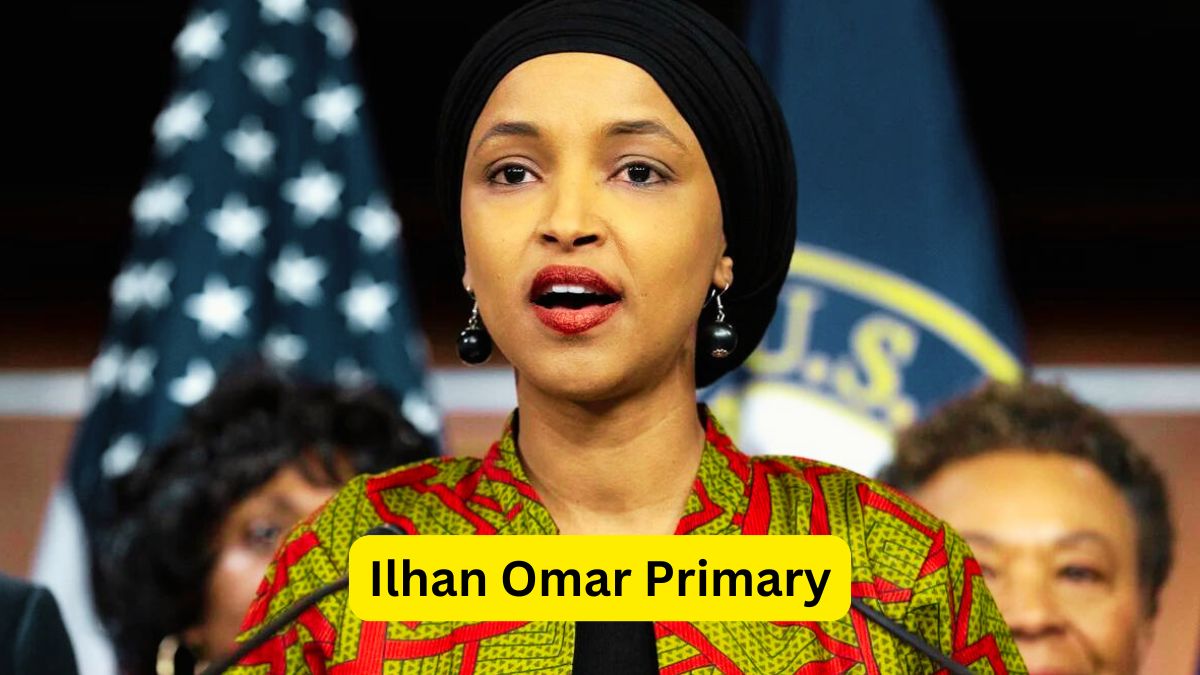On August 7, 2024, Congresswoman Ilhan Omar is facing a significant test in her political career: the primary election for her seat in the U.S. House of Representatives. Omar, representing Minnesota’s 5th Congressional District, has been a prominent figure in American politics, known for her progressive stances and outspoken advocacy on various issues. This blog post delves into the key aspects of Ilhan Omar’s primary race, examining her campaign strategy, her challengers, and the broader implications for her political future.
Background on Ilhan Omar
Ilhan Omar first made history in 2018 when she became one of the first two Muslim women elected to Congress. A member of the Democratic-Farmer-Labor Party (DFL), she has been a vocal advocate for progressive causes, including healthcare reform, immigration rights, and climate change. Her work has made her a leading voice on issues affecting marginalized communities and has brought both significant support and controversy.
The Significance of the Primary
Primary elections are critical in determining which candidates will advance to the general election. For Omar, the primary is not just a routine election; it’s a pivotal moment that could impact her political career and the direction of her policy agenda. Given her high profile, the primary is closely watched by both supporters and critics.
Campaign Strategy
Ilhan Omar’s campaign strategy focuses on mobilizing her base and appealing to progressive voters. Her campaign has been marked by several key tactics:
- Grassroots Mobilization: Omar’s campaign heavily relies on grassroots support. Volunteers and local organizers play a crucial role in canvassing, phone banking, and rallying voters. This approach aims to build a strong community presence and generate enthusiasm among supporters.
- Progressive Policies: Omar continues to champion progressive policies, including Medicare for All, the Green New Deal, and student debt relief. By emphasizing these issues, she seeks to solidify her support among voters who prioritize progressive reforms.
- Media and Social Media Presence: Omar has a strong presence on social media, using platforms like Twitter and Instagram to communicate directly with voters. Her online presence allows her to address issues quickly and mobilize support in real-time.
- Endorsements: Endorsements from influential figures and organizations play a significant role in her campaign. High-profile endorsements can boost credibility and attract additional support from various groups.
Challenges and Criticisms
Despite her strong support base, Ilhan Omar faces several challenges in the primary:
- Opposition from Rivals: Omar is contending with multiple challengers in the primary, some of whom are positioning themselves as more moderate alternatives. These challengers may appeal to voters who are dissatisfied with Omar’s progressive stances or who seek a different approach to the issues.
- Controversies: Omar has faced criticism and controversy throughout her tenure. Some of her comments and positions have been polarizing, leading to both national and local scrutiny. These controversies may affect voter perception and impact her chances in the primary.
- Electoral Strategy of Opponents: Rivals are likely to focus on areas where they believe Omar is vulnerable, such as her controversial statements or her stance on specific issues. They may also attempt to capitalize on any discontent among voters in the district.
Voter Sentiment
Voter sentiment in Minnesota’s 5th Congressional District plays a crucial role in the primary election. The district is known for its progressive leanings, which have generally supported Omar’s policies. However, shifts in voter priorities or dissatisfaction with her performance could influence the outcome of the primary.
- Progressive Voters: Many voters in the district support Omar’s progressive agenda and view her as a strong advocate for their concerns. This support is crucial for her success in the primary.
- Moderate and Independent Voters: Moderate and independent voters may be swayed by alternative candidates who offer a different vision or critique Omar’s approach. Engaging these voters is essential for any candidate aiming to secure a broad base of support.
- Community Issues: Local issues, such as economic development, public safety, and education, may also influence voter decisions. Candidates who address these concerns effectively could gain an advantage.
Implications for the General Election
The outcome of the primary will have significant implications for the general election. If Omar secures her position, she will likely continue to push for her progressive agenda and work on legislation that aligns with her values. A primary loss, on the other hand, could lead to a shift in focus and strategy for her future political endeavors.
- Impact on Progressive Politics: Omar’s continued presence in Congress would reinforce the voice of progressives and could influence national policy debates. Her policies and perspectives will remain influential in shaping legislative priorities.
- Political Landscape: The primary result could impact the broader political landscape, including the dynamics within the Democratic Party and the overall direction of political discourse.
- Future Prospects: Regardless of the primary outcome, Omar’s career in politics is likely to continue, whether in a different role or through other avenues of advocacy and public service.
Conclusion
The primary election for Ilhan Omar is a significant event that will determine not only her future in Congress but also the direction of progressive politics in the United States. As voters head to the polls, they will be making a choice that reflects their priorities and values. The results of the primary will set the stage for the general election and shape the political landscape for the coming years. Whether Omar secures her seat or faces new challenges, her impact on American politics will undoubtedly continue to be a subject of keen interest and debate.
